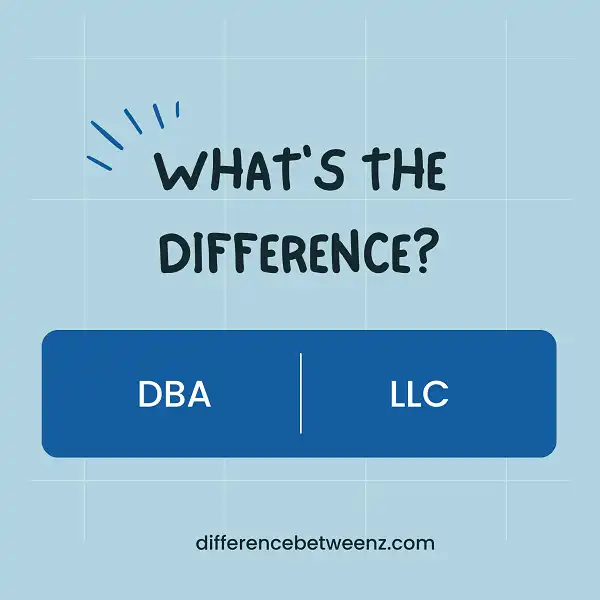When you are starting a new business, one of the first decisions you need to make is what type of entity to form. There are a few different types of business structures you can choose from, including a sole proprietorship, limited liability company (LLC), or corporation. In this blog post, we will explain the difference between a DBA doing business as and an LLC. If you are not sure which structure is right for your business, contact an attorney or accountant for advice.
What is DBA?
DBA, or “Doing Business As,” is a legal designation that allows a business to operate under a name other than its legal name. For example, a company might be legally registered as “John Smith Enterprises,” but it could do business as “JSE” or “Smithco.” DBA names are often used by sole proprietorships and partnerships, as well as corporations and LLCs. In order to use a DBA name, businesses must typically file paperwork with their local government. Once approved, businesses can start using their DBA name for all official purposes, including advertising, marketing, and invoicing. DBA names can be an important tool for businesses of all sizes, allowing them to create a more recognizable brand and reach new customers.
What is LLC?
LLC stands for Limited Liability Company. LLCs are a type of business entity that offer owners limited liability protection. LLCs are formed by filing articles of organization with the appropriate state agency. LLCs can be managed by one or more members, and members can be individuals, corporations, or other LLCs. LLCs have flexible profit-sharing arrangements and can be taxed as either partnerships or corporations. LLCs are a popular choice for small businesses because they offer personal asset protection and operational flexibility.
Difference between DBA and LLC
DBA Doing Business As and LLC Limited Liability Company are two business structures that offer different protections for business owners. DBA is a more informal structure and does not offer the same protections as an LLC. LLCs are required to file paperwork with the state and pay annual fees, but they offer limited liability protection for business owners. This means that if the business is sued, the owners are not personally liable for the debts of the business. DBA does not offer this protection, and so business owners may be held liable for the debts of their DBA. For this reason, LLCs are a more popular choice for small businesses.
Conclusion
There are a few key differences between setting up a DBA and an LLC. The most important one is that an LLC offers limited liability protection for its owners, which means that they are only liable for the amount of money that they have invested in the company. This can be a great option for business owners who want to protect their personal assets from any legal issues or debts that may arise from running their business. If you’re thinking of starting your own business, it’s important to weigh the pros and cons of each type of entity and decide which option is best for you.


